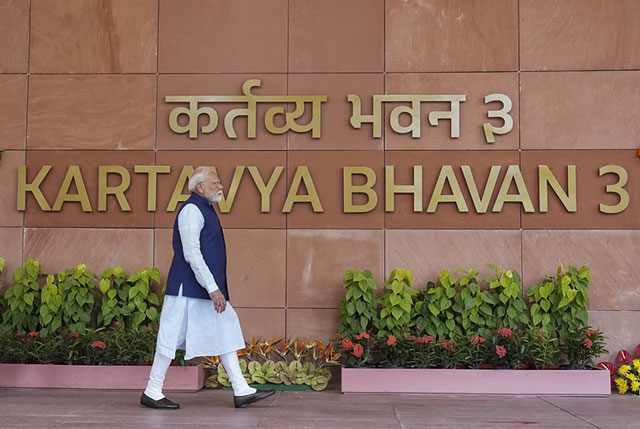Daijiworld Media Network – New Delhi
New Delhi, Nov 25: In a stern communication aimed at overhauling governance efficiency, the Prime Minister’s Office (PMO) has directed all central ministries to end silo-style functioning, avoid inter-departmental blame games, and produce only “high-quality” cabinet notes aligned with global standards.
Issued last week, the sharply worded directive instructs secretaries to abandon the “routine bureaucratic mindset” and prioritise value addition while preparing or reviewing cabinet notes — key documents through which ministers seek government approval for major policies and projects. The PMO underlined that these guidelines reflect Prime Minister Narendra Modi’s personal expectations, and must be implemented without exception.

The note stresses the need for timely finalisation of cabinet proposals. Ministries have been asked to ensure early and meaningful inter-ministerial consultations, including face-to-face meetings if required, to prevent files from stagnating in extended back-and-forth exchanges.
The PMO further highlighted the importance of global benchmarking, stating that proposals brought before Cabinet Committees covering schemes, policies, and infrastructure projects should include comparisons with international standards “wherever possible.”
Warning against narrow departmental thinking, the PMO reminded ministries to keep national interest at the centre of all policy conceptualisation, especially in proposals involving multiple ministries. “Departments should not focus only on their limited turf but look at the larger national perspective,” the directive said.
Officials familiar with the matter reveal that recurring bottlenecks, turf wars, and delays across ministries have triggered this strong intervention. With crucial reforms and major infrastructure projects lined up, the government is pushing to cut red tape and accelerate execution, a senior source noted.
A top bureaucrat pointed out that major projects often present conflicting views from different ministries, forcing the Prime Minister to navigate competing agendas. “When five ministries are involved, the PM gets five different viewpoints pulling in different directions. This needs to end at the outset,” the officer said.
The new instructions place the onus squarely on ministries to coordinate better, think collectively, and ensure the nation’s interests prevail over departmental preferences a push that the PMO hopes will streamline governance and speed up decision-making.